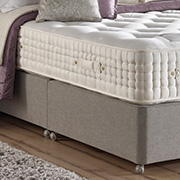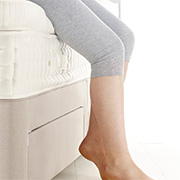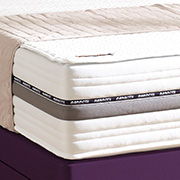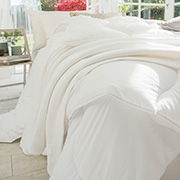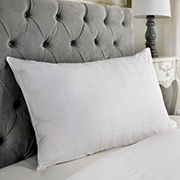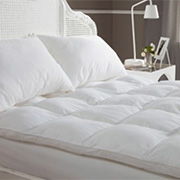
Time For a New Pillow?
Over the years we can grow quite an attachment with our pillows, I take mine everywhere, but even washable pillows eventually need replacing. However, most of us overlook the signs that our pillows have reached the end of their life which are usually:
- Waking up with aches or pains in the neck or head
- Having to fold the pillow in half to receive more support
- Your pillow feels lumpy and bumpy in places
- Your embarrassed to look at your pillow without a pillowcase on (we have all been there)
If any of the above sounds familiar than its probably time to say goodbye to your heads best friend and start searching for a suitable replacement. But where to start? how do you know your choosing the right pillow?

There is so much choice out there that narrowing it down can be rather confusing, thats why, here at Sleep Matters, we wanted to share with you our step by step guide on choosing the perfect pillow.
STEP 1: Know What Your Prepared to Pay

The saying goes ‘you can’t put a price on a good nights sleep,’ but, with pillow prices ranging from anywhere between £6.00 to £44,171.00 – no I’m not exaggerating, there really is a pillow that costs this much – it can be hard to know what you can expect to pay for a good quality pillow.
The truth is when it comes to buying a new pillow, you don’t have to break the bank. There are some great quality pillows on the market right now, which are available from around £20 to £100.00.
When considering price, you should ask yourself how long you want the pillow to last? A better quality pillow may cost more but should stay supportive and retain their shape for longer. With this being said, we should also remember, a pillow can contain as much as 10% of its weight in skin scale mould, dead and living dust mites and their allergen droppings.
The Sleep Council recommends replacing your pillows every two to three years to ensure a healthy sleeping environment. so you may want to keep this in mind before shelling out hundreds of pounds.
STEP 2: Try Before You Buy

The most important thing, when shopping for a new pillow, is to try it! And no – gently punching the pillow with your fists does not constitute trying it!
You need to lie down, preferably on a mattress similar to the one you sleep on, get into your usual sleeping position and tuck the pillow well into your neck and shoulder to ensure full support. Below you can find a rough guide regarding the level of support you may require based on your desired sleeping position.
Sleeping Position |
Support Level |
| Front Sleepers | Medium – Soft Support – increased cushioning and comfort |
| Back Sleepers | Medium Support – cradles the head and neck. |
| Side Sleepers | Firm Support – keeps the head and neck in a neutral position. |
Whilst the above table will act as a general guide, you should ask a member of staff to advise you on how the pillow is supporting you – when a pillow is supporting you correctly your spine should be straight. If the pillow is too soft, your head will hang causing the neck and spine to curve resulting in aches and pains the next morning. If the pillow is too firm it will force your neck upwards giving you a crick in the neck the following day.
STEP 3: CHOOSE THE FILL
Natural or Synthetic?
Contrary to popular belief, a synthetic pillow does not mean necessarily mean a lesser quality one. Of course, this does depend on brand and pricing structure for instance; we can expect that a £45.00 natural pillow may be of a higher quality than a £6.00 synthetic one. However, we have to accept that synthetic pillows are not what they used to be, with many products on the market offering the plump, breathable and light-weight feel you would expect from a natural pillow.
Natural Pillows

Natural pillows are most commonly a combination of a feather and down fill. Generally speaking, the more feather in the pillow, the firmer the support and heavier the pillow will be. The more down fill in the pillow, the softer and lighter the pillow will be- though admittedly a little heavier on the purse strings. Feather and down pillows are chosen for their high quality, luxurious softness, inherent breathability and lasting support, and are usually priced a little higher than synthetic fill pillows.
TOP TIP: Try to look for pillows that are ethically sourced and conform to the EDFA (European Down and Feather Association.)
You will also find natural pillows that have a fill of wool, cotton, latex and many other natural fibres. These pillows will have been specifically designed for their unique properties, for example wool is particularly good at wicking away moisture, and cotton is inherently cool.
Synthetic Pillows

Synthetic Pillows usually contain a polyester fill, and come in a variety of support levels. Remember, branded fibres are often an assurance of a good quality synthetic pillow. For instance, our synthetic pillows contain Smartfil® fibres which have been glazed with a permanent silicone layer making them super resilient and silky soft to the touch. Pillows that contain Smartfil® are high quality and are more likely, than standard synthetic pillows, to retain their shape and loft over time.
Some synthetic pillows will be specifically designed to help with climate control throughout the night, others will be designed to give the luxurious feel you would expect from a natural pillow. Always ask a member of staff what the benefits of each pillow are and consider how this will, in turn, benefit you.
Allergy Sufferers Beware

A major pro of synthetic pillows is that they are Hypo Allergenic and suitable for all of us – including allergy sufferers. Some good quality ones can be washed at 60° – which is the temperature that kills dust-mites – for extra peace of mind.
Pillows with natural fill, however, are not reccomended for those of us who suffer from allergies such as rhinitis, asthma or eczema, however this does not make them unsuitable for people that have house dust-mite allergies. If you have your heart set on a natural pillow but have house dust mite allergies than you should look for pillows that have the NOMITE® label, This tells you that the pillows are all encased in a cover that is dust mite proof and the fillings have been properly cleaned. You can also compromise, by choosing a pillow that has a synthetic fill, but is encased in a 100% natural cover.
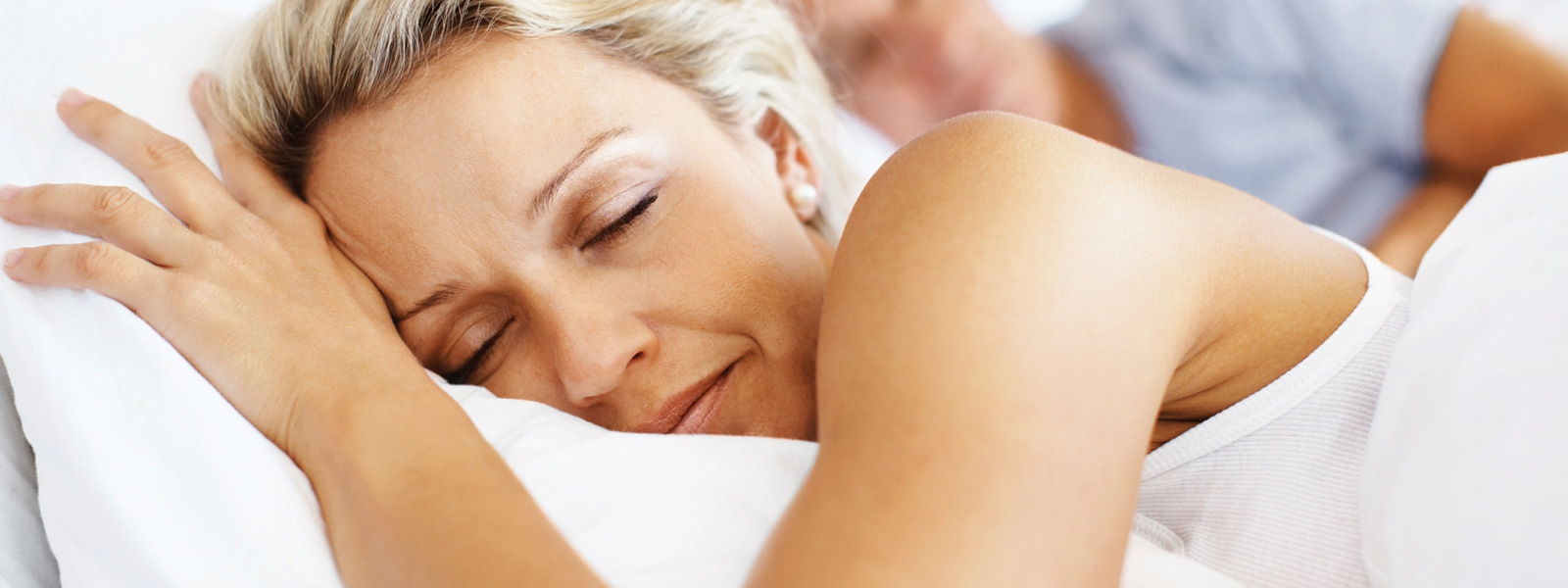
So, there you have it, before venturing out to buy yourself a new pillow, you should know roughly what you want to spend, try it before you buy it and choose the fill according to your individual needs. For more information about choosing the perfect pillow visit our Sleep Accessories page, or visit us in store to receive all the advice you need.

